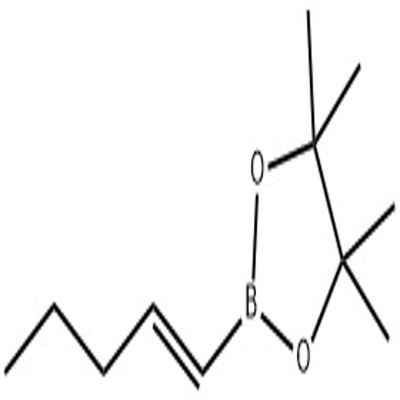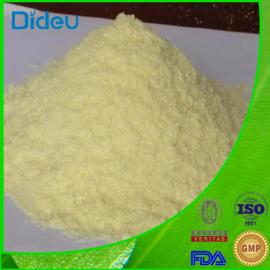Biomarin C-type natriuretic peptide analogue vosoritide phase III clinical success
-
Last Update: 2019-12-18
-
Source: Internet
-
Author: User
Search more information of high quality chemicals, good prices and reliable suppliers, visit
www.echemi.com
Biomarin is a global biotechnology company dedicated to the development and commercialization of innovative therapies for patients with severe and life-threatening rare and ultra rare genetic diseases Its product portfolio includes seven commercialized products and a variety of clinical and preclinical candidates Recently, the company released the final positive results of a global phase III study on the treatment of achondroplasia with vosoritide (bmn111) Vosoritide is a research-based, once daily injection of C-type natriuretic peptide (CNP) analog Achondroplasia is the most common disproportionate short stature The study was a randomized, double-blind, placebo-controlled phase III study in which 121 children with achondroplasia, aged 5-14, whose growth plates were still open, were enrolled to evaluate the efficacy and safety of vosoritide and placebo These patients completed a baseline study of at least six months before entering phase III to determine their respective baseline growth rates In the phase III study, patients were randomly assigned to receive 52 weeks of vosoritide (15 UG / kg / day) or placebo The primary end point was the change in growth rate relative to baseline during the one-year treatment period in children treated with vooritide compared to placebo The results showed that the study reached the primary end point: after one year of treatment, the growth rate of vooritide treatment was 1.6cm/year compared with the baseline (P < 0.0001) The results are consistent with those in the large patient population studied In the study, vosoritide was generally well tolerated without clinically significant blood pressure drop In mid November this year, biomarin released the results of an ongoing, open label, dose discovery phase II study on the annual R & D day The data showed that compared with age and gender matched children in a new natural history of achondroplasia data set (n = 619), the cohort of three (n = 10) patients receiving a dose of 15 μ g / kg / day vosoritide was 54 months old The cumulative average height increased by 9.0 cm (P < 0.005) The increase of 2.2cm over the past 12 months further illustrates the beneficial effect of vosoritide on height Based on these results, biomarin plans to meet with regulators in the first half of 2020 to discuss plans to submit listing applications Hank Fuchs, MD, global R & D president of biomarin, said: "this is an important milestone, further enhancing our confidence in the huge potential of vosoritide The placebo-controlled study showed that in a wide range of study population, the growth rate was greatly improved by vooritide treatment These results, combined with the long-term benefits seen in the phase II study, provide a significant and ongoing treatment benefit for children with achondroplasia We would like to thank the child patients and their families who participated in the drug development project, and we look forward to discussing with the regulatory authorities the plan to submit the listing application We also plan to present detailed data on this study at the upcoming medical conference " "As a therapist, I'm very excited to see a research-based therapy with convincing results," said John A Phillips, M.D., of Vanderbilt University Medical Center "These data confirm that vosoritide may be the first medical treatment for the root cause of achondroplasia Importantly, these data provide more and more scientific data for potential breakthroughs in the treatment of achondroplasia " Mechanism of vooritide Achondroplasia is the most common disproportionate short stature in human beings, which is characterized by slow osteogenesis in cartilage, resulting in disproportionate shortness and structural disorder of long bone, spine, face and skull base This is caused by a mutation in the fibroblast growth factor receptor 3 gene (FGFR3), a negative regulator of bone growth In addition to disproportionate short stature, patients with achondroplasia may experience serious health complications, including macropore compression, sleep apnea, leg bending, facial hypoplasia, permanent swing of the lower back, spinal stenosis, and recurrent ear infections Some of these complications may result in the need for invasive surgery, such as spinal cord decompression and straightening of bent legs In addition, studies have shown an increase in mortality in each age group.
This article is an English version of an article which is originally in the Chinese language on echemi.com and is provided for information purposes only.
This website makes no representation or warranty of any kind, either expressed or implied, as to the accuracy, completeness ownership or reliability of
the article or any translations thereof. If you have any concerns or complaints relating to the article, please send an email, providing a detailed
description of the concern or complaint, to
service@echemi.com. A staff member will contact you within 5 working days. Once verified, infringing content
will be removed immediately.







